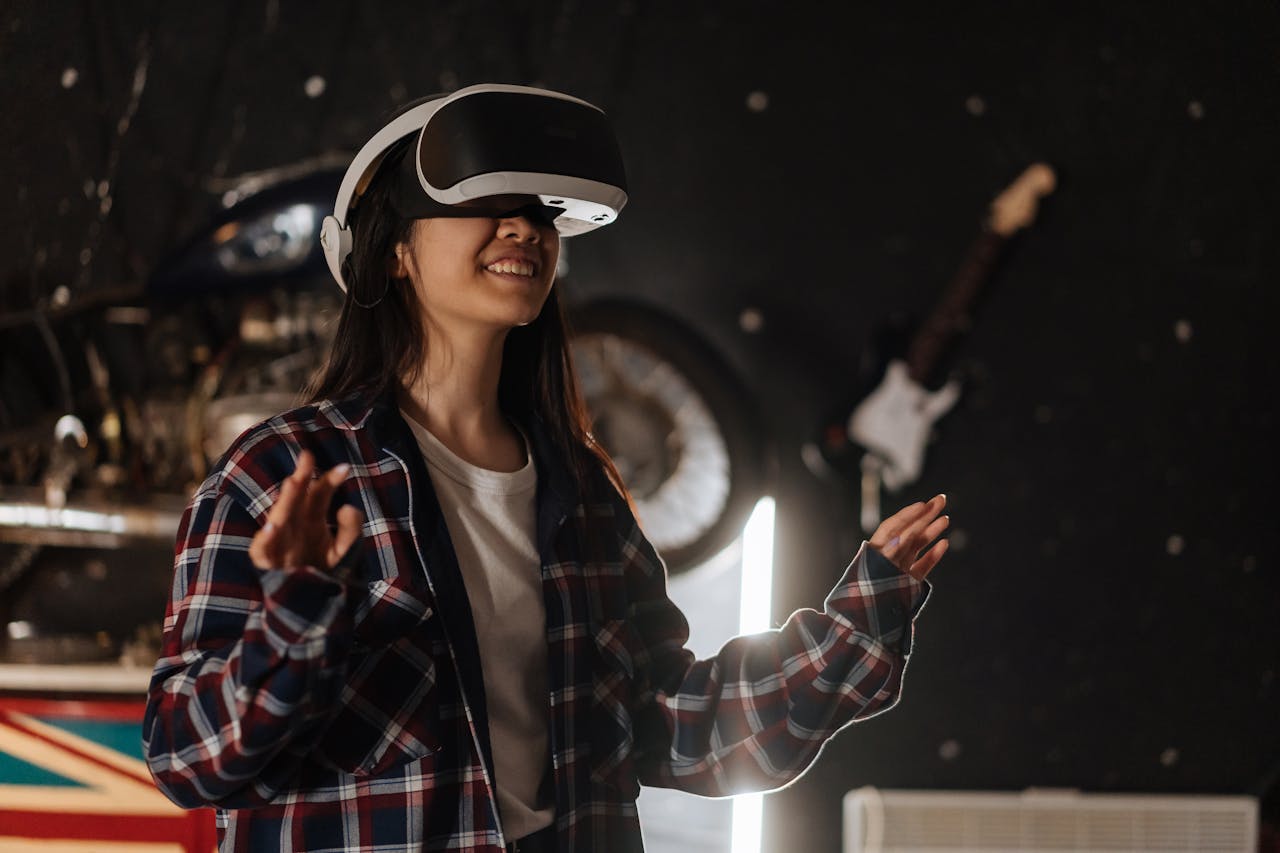
Technology helps to promote mental health through easily accessible resources and therapeutic support. It provides professional guidance and self-care resources, from apps and online platforms to virtual therapy. Some technologies used for mental health promotion include artificial intelligence, teletherapy, and virtual reality.
The use of technology in promoting mental health is growing rapidly. Currently, therapists use technology on different levels of digital therapy. These include wearable devices, virtual reality, telehealth, apps, and artificial intelligence. Software developers, on the other hand, spend sleepless nights developing chatbots, apps, and other programs to promote mental health.
Innovative platforms, tools, and interventions made possible by technology can improve mental health resource accessibility, encourage early intervention, and make it easier to manage and treat mental health disorders. Undoubtedly, technology has provided more ways of promoting mental health. Read on to learn more about technology’s use in enhancing mental health.
How Technology Promotes Mental Health
Here’s how technology has brought new ideas for promoting mental health awareness.
Digital Screening
There are screening and assessment apps available for mental health disorders like stress, anxiety, and depression through smartphone apps and web-based resources. These evaluations provide people with a better understanding of their mental health situation and point out possible areas for support or intervention.
These digital evaluators gather information over a certain period, making it possible to analyze patterns and trends in mental health problems. The gadgets then use the data to develop individualized interventions and treatment programs.
Enhanced Access to Resources
Technology gives people access to knowledge and learning materials about mental health issues, therapies, and self-care techniques. Blogs, websites, and online discussion boards help in raising awareness for mental health by providing insightful information to anyone seeking mental health information.
Services like phone calls and video conferencing facilitate distant connections between individuals and mental health specialists. This makes therapy and counselling services more accessible, especially for people who live in remote places or have limited mobility.
Better Self-management
Sensor-equipped wearables and smartphone apps can track physiological stress markers, sleep quality, and fitness levels. People can monitor these indicators to understand their general state of health better. That helps them prioritize stress reduction and self-care.
This technology can offer personalized recommendations based on a person’s preferences, objectives, and behavior patterns. The customized intervention increases motivation and engagement, enabling people to manage their mental health actively.
Therapeutic Support
Mental health applications provide evidence-based treatments like mindfulness meditation, cognitive behavioral therapy (CBT), stress management, and mood tracking. These applications give users the skills and activities they need to enhance their emotional health and control symptoms of mental illnesses.
Technologies Used for Mental Health Treatment
Here is a more detailed look at technological innovations that promote mental health.
Artificial Intelligence
Artificial intelligence is revolutionizing mental health service provision by offering individualized, data-driven treatment programs. AI provides real-time monitoring by analyzing patient data, including behavior patterns and mood. For instance, AI can examine patient data and spot patterns that can point to suicidal thoughts, allowing mental health providers to act before it’s too late.
Teletherapy
A form of therapy known as teletherapy connects patients to mental health providers virtually through phone calls, video conferencing, or text messages. Teletherapy has gained popularity because it’s accessible, convenient, and affordable.
Mobile Apps
Mobile applications are becoming a standard tool in mental health treatment. Most apps can assist patients in monitoring their emotions, offering coping mechanisms, and even facilitating communication with mental health providers. It’s a good option for those who might feel awkward seeking therapy.
Since most of these applications are free or inexpensive, people without insurance or limited funds may find them a good alternative to traditional therapy. The good thing about apps is that they offer round-the-clock support, benefiting people with symptoms outside regular therapy hours.
Virtual Reality
Virtual reality (VR) therapy is another cutting-edge and captivating technology for treating mental health issues, especially anxiety disorders, PTSD, and phobias. This technology creates an immersive environment that makes one relax and reduces stress.
Pros and Cons of Technology in Promoting Mental Health
Let’s shed some light on the pros and cons of technological advancements in supporting mental health awareness.
Pros
Here are some of the main advantages of technology for mental health
Better Patient Engagement
Technology use can enhance patient engagement during mental therapy. For instance, apps for mental health provide resources and tools to track their progress, manage their symptoms, and get in touch with medical professionals. Additionally, apps can offer patients real-time support and feedback, which benefits those with mental health problems.
Individualized Care
Technology has made it easy to tailor every patient’s specific requirements for mental health treatment. For instance, you can customize virtual reality therapy to a patient’s unique phobias and anxieties. Machine learning algorithms can also analyze a patient’s data to spot symptom trends and create customized therapy regimens.
Improved Results
Technology has dramatically improved outcomes for mental health patients. For example, teletherapy is just as effective as in-person therapy in treating mental health disorders. The use of mental health apps to manage mental condition symptoms and track progress has also yielded good results.
Convenience
Technology has made it possible for therapy to take place anywhere and at any time, which is perfect for those who struggle to get to in-person visits.
Cons
Although technology has benefited mental health patients, it has several shortcomings. Here are some of them.
Privacy Issues
Patients may be reluctant to divulge private information online, especially if they have security concerns. Furthermore, there are concerns regarding how mental health applications may use the data they gather about user behavior and symptoms.
Limited Efficacy
Sometimes, technology has not been as effective as in-person therapy. For instance, mental health apps cannot effectively deal with severe mental health conditions.
Absence of Human Engagement
Although mental health applications and teletherapy can offer patients resources and support, they cannot match the level of interpersonal interaction with in-person therapy. Those who suffer from social isolation or loneliness may find this very difficult.
Conclusion
Technology is one of the best strategies to promote mental health. It does this through expanding access to resources, offering cutting-edge therapeutic interventions, creating peer support networks, and utilizing data analytics. This enables people to take charge of their mental health. Various tools and platforms of managing mental health are now available thanks to technology. Generally, technology has played a significant role in promoting mental health.






